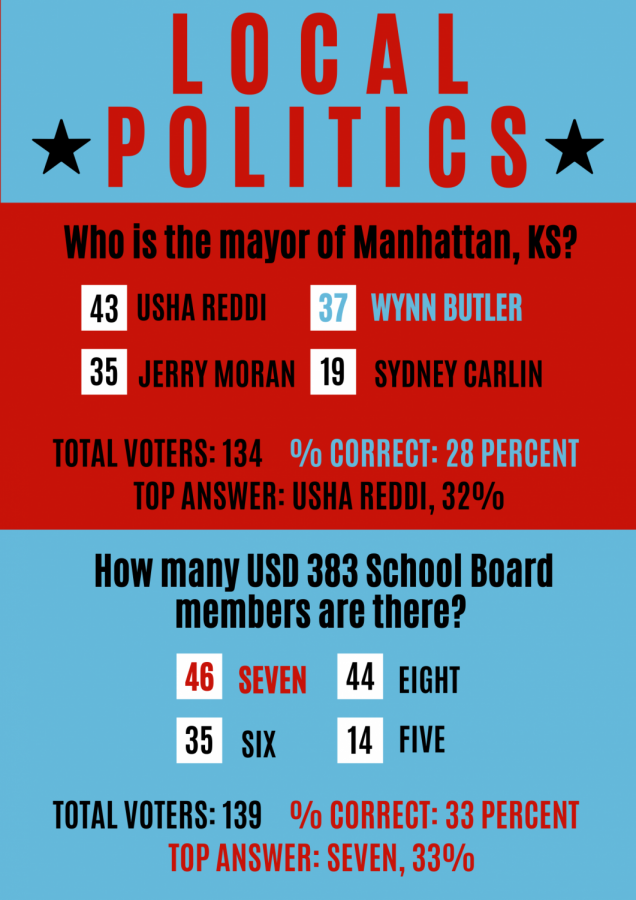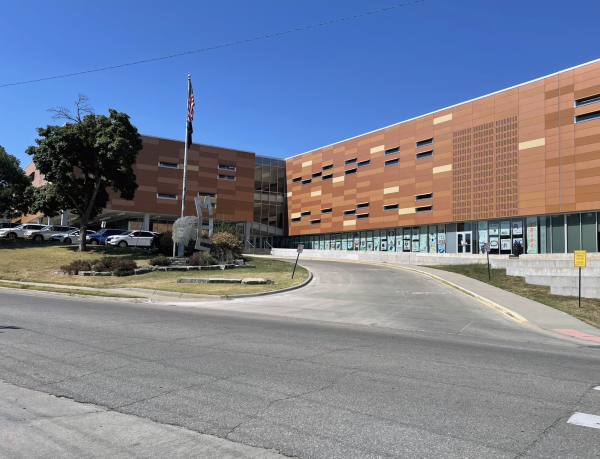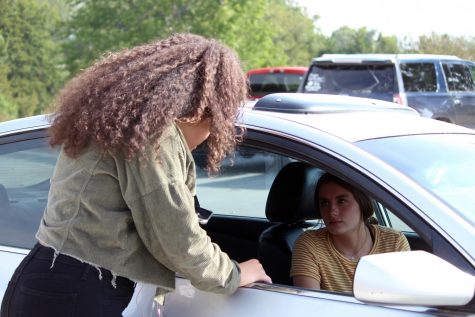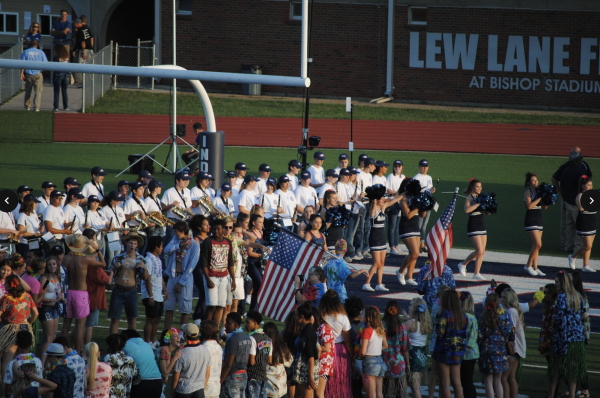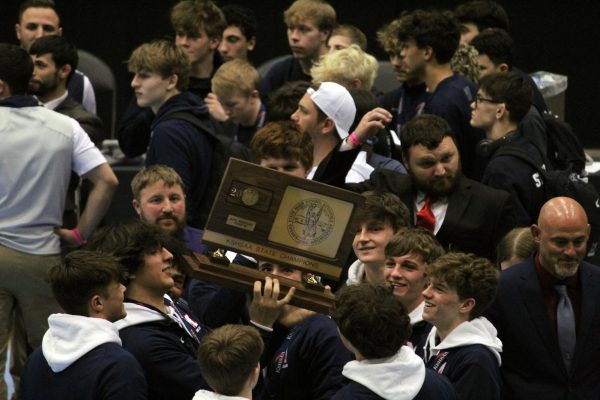National politics impact local elections
Manhattan’s local elections, along with most around the United States, are officially nonpartisan. Parties don’t nominate candidates to run, candidates do so themselves, relying on grassroots volunteers to generate support within the community. They are held on off years to mitigate the influence of larger elections on the outcome. These measures are meant to prevent the national partisan gridlock from filtering down to the local level. The reality of partisanship in local elections, however, is a different story.
In the school board race, five out of the six candidates have accepted the endorsement of the local Democratic or Republican parties. Karla Hagemeister, Jayme Morris-Hardeman and Teresa Parks accepted for the Democrats; Steven Ruzzin and Betty Matingly-Ebert accepted for the Republicans. The remaining candidate, Christine Weixelman, who won the most votes in the August primary, was endorsed by the Republican party but did not accept it.
“[Candidates receiving party endorsements] doesn’t surprise me at all,” said Nate Birkhead, a professor of political science at K-State who studies constituents’ relationship with their elected officials. “The goal of having a nonpartisan election is that people will have less constraint with their positions… But the best way to get money to run a campaign, the best way to get people to knock on doors and deliver handbills, is to not do it yourself. The best way to do all that is to get connected to a broader network of people who are motivated by issues.”
The increase of national partisanship in local elections had been on the rise since the 1980s, according to the Niskanen Center. In part, this is because the political realignment the civil rights era brought has created an entrenched partisan divide.
“There has been a growing trend over the past several decades where national politics has crept more and more into state level elections, and local level elections. So we have seen what we call that nationalization of politics,” Birkhead said. “And so that means that Democrats have a harder time drawing a distinction between themselves and Joe Biden, Republicans have a harder time drawing a distinction between themselves and Donald Trump.”
The nationalization of local politics is also exacerbated by who votes in local elections. The people who vote in local elections are very engaged in politics. Therefore, they are likely very partisan. In turn, local elections do not become a battle of policy, because most people know what policy they support, it becomes a competition of who can get the most people to the polls, and what gets people to the polls is extreme positions.
“People don’t tend to be persuaded… if you think that the schools are teaching critical race theory, then you’re already not somebody who is persuadable… what you are instead is somebody who is going to be pushed,” Birkhead said. “You’re already on [a candidate’s] side, and then… all those candidates have to do is mobilize your support. And so that campaign money is simply about ‘don’t forget the election is this time, don’t forget something is at stake’, and just simply just taking advantage of a latent predisposition to support [a candidate].”
In Manhattan, this could likely take the form of a conservative reaction to last year’s election, as happened in 2010 after Barack Obama won in 2008. The Tea Party movement was nationwide, but in Manhattan specifically it resulted in a conservative City Commission that repealed the Gender Equality Ordinance.
“We know that Riley county did vote blue in the last election overall, but it was pretty narrow,” Birkhead said. “ But since then, Joe Biden has flagged a little bit and his approval, and that maybe means his supporters are not going to turn out as much. Maybe people in the Republican Party have been animating their supporters more… and so that does all suggest that there will be some sort of national partisan influence.”
With partisanship a given in the upcoming local elections, the question remaining is whether this is a bad thing. The current story told is that partisanship divides us needlessly and hurts local communities, but in reality there are benefits and drawbacks to national influence in local election cycles.
“There’s two ways to think about this,” Birkhead said. “One way to think about this is that national politics tends to be a useful way for people who don’t know much about what’s going on to at least approach an issue with some level of understanding if [they] don’t know much… and so on that level, there can be some benefits. But the costs are also very real in that the issues that we’re debating at the school board level are not affected by Donald Trump or Joe Biden… it does come in at the expense of not keeping people focused on what’s really going on here.”
In all likelihood, on Nov. 2 in Manhattan partisans who knew who they were voting for days after the primary concluded will head to the polls and vote based on how the candidates align with a national political identity. There is little short of another national political alignment that will change that reality.
“Whether [partisanship] is good or bad is kind of irrelevant, we’re stuck with it,” Birkhead said. “And so, it’s probably best that we try to figure out how we can operate in this space to deliver the best goods that we can, while minimizing its negative consequences.”


